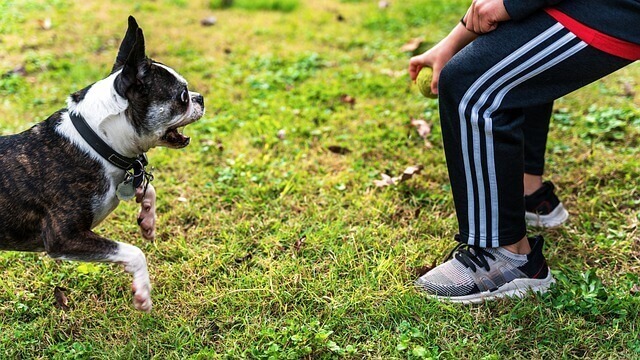Adopting a dog for the first time can be a very exciting and rewarding experience. However, there are a few things you need to think about before taking on the responsibility. This guide walks you through some of the most important factors to consider when going through the process of adopting your first dog.
There are a lot of things to consider when you’re looking at adopting a dog. This is your first dog and one that you really want to be a part of your family.
There are many factors that go into whether or not you are ready to adopt a dog. One of the biggest factors is finances. Most people don’t realize how much it actually costs to own a dog. Dogs are part of your family, so they should be able to live in your home.
If you are a new dog owner you know all this already, but if you are about to adopt your first dog, some things need to be on your mind before you take that commitment on. I am not saying that adopting a dog for the first time is very challenging.
It’s just that there are some things on your mind before you get it done. We all know that dogs live with us for more than 10 years. Some live up to 20 years old. That is why paying attention to the following things is very important when adopting a dog for the first time.
When adopting a dog for the first time, there are some common mistakes that new dog owners make. Learning from these first-time mistakes can reduce a lot of stress on both you and your dog. Let’s take a look at some of these mistakes.
Adopting a Dog for the First Time – A Guide for First-Time Dog Owners
1# Researching Dog Breeds
The first step in adopting a dog is to research different breeds. Different breeds have unique personalities, characteristics, and needs. For example, some breeds are more active and require more exercise, while others are more laid back and content with minimal physical activity.
It is essential to consider your lifestyle when choosing a breed. If you live in an apartment and have limited space, a small or medium-sized dog would be more suitable. If you have a large yard and enjoy outdoor activities, a larger breed that is more active would be a better fit.
2# Choosing a Dog
When choosing a dog, consider its age, size, and temperament. Puppies are adorable, but they require more training and attention than adult dogs. Adult dogs, on the other hand, may already be trained and have established personalities. Additionally, it is important to choose a dog that matches your lifestyle and personality to ensure a good match.
3# Preparing Your Home
Before bringing your new furry friend home, it is important to prepare your home. This includes creating a designated area for the dog, purchasing necessary supplies such as food, water bowls, and a bed, and puppy-proofing your home.
This not only ensures the safety of your new pet but also prevents any destructive behavior.
4# Introducing Your Dog to Your Home
When introducing your new dog to your home, it is important to do so gradually. Start by introducing your dog to one room at a time, allowing it to become familiar with its surroundings. Once the dog has become comfortable with one room, gradually introduce it to other areas of your home.
Additionally, it is important to establish a routine for your new pet. This includes feeding times, exercise times, and bathroom breaks. Establishing a routine not only helps to prevent any accidents or destructive behavior but also helps to create a sense of security for your pet.
5# Training Your Dog
Training your dog is essential to ensure a well-behaved and happy pet. This includes basic obedience training such as sit, stay, and come, as well as potty training.
Training your dog requires patience, consistency, and positive reinforcement. This includes rewarding your dog for good behavior and redirecting or ignoring bad behavior.
Enrolling your dog in obedience classes or working with a professional trainer can also be helpful. This not only provides your pet with structured training but also helps to strengthen the bond between you and your furry friend.
6# Providing Proper Nutrition and Exercise
Providing your dog with proper nutrition and exercise is essential for its overall health and well-being. This includes feeding your dog a balanced diet, providing fresh water at all times, and ensuring your pet gets enough exercise.
The amount of food and exercise your dog needs depends on its age, size, and breed. It is important to consult with a veterinarian to determine the appropriate amount of food and exercise for your pet.
Additionally, providing your dog with mental stimulation such as toys, puzzles, and games can help to prevent boredom and destructive behavior.
7# Regular Veterinary Check-Ups
Regular veterinary check-ups are essential to ensure your pet’s health and well-being. This includes routine vaccinations, check-ups, and preventative care.
Additionally, it is important to keep an eye out for any changes in your pet’s behavior or health. This includes changes in appetite, energy levels, or bathroom habits. Catching any potential health issues early can help to ensure prompt treatment and prevent any serious health concerns.
8# Building a Strong Relationship
Building a strong relationship with your new dog is essential for a happy and healthy bond. This includes spending quality time together, providing love and affection, and creating positive experiences.
Engaging in activities such as walks, playtime, and training sessions not only provides exercise and mental stimulation for your pet but also strengthens the bond between you and your furry friend.
Additionally, it is important to provide your pet with plenty of love and affection. This includes petting, cuddling, and speaking to your pet in a calm and soothing tone.
Creating positive experiences for your pet such as taking it on new adventures or introducing it to new friends also helps to strengthen the bond between you and your dog.
9# Addressing Behavioral Issues
When addressing behavioral issues, it is important to remain patient and consistent. This includes redirecting or ignoring bad behavior, providing positive reinforcement for good behavior, and seeking professional help if necessary.

Conclusion
Adopting a dog for the first time can be a rewarding and fulfilling experience. However, it is important to consider several factors before making the decision to adopt. Researching different breeds, preparing your home, and establishing a routine are all essential steps in ensuring a smooth transition for both you and your new furry friend.
Providing proper nutrition and exercise, regular veterinary check-ups, and building a strong relationship through love and affection are also essential for a happy and healthy bond. Addressing any behavioral issues that may arise with patience and consistency is also important for a successful relationship.
Remember, adopting a dog is a long-term commitment that requires love, patience, and dedication. By following these tips, you can ensure a happy and healthy relationship with your new best friend.
Frequently Asked Questions
Q: What should I consider before adopting a dog?
A: Before adopting a dog, you should consider your lifestyle, living space, budget, and time commitment. It is important to research different breeds to find one that fits your lifestyle and to ensure that you are financially able to provide for a pet’s needs.
Q: How do I prepare my home for a new dog?
A: To prepare your home for a new dog, you should designate a space for your pet, puppy-proof your home, and ensure that you have all necessary supplies such as food, water bowls, toys, and a comfortable bed.
Q: How do I establish a routine for my new dog?
A: To establish a routine for your new dog, you should establish a consistent feeding and exercise schedule, provide consistent training, and spend quality time together.
Q: What should I feed my new dog?
A: The type of food you should feed your new dog depends on its age, size, and breed. It is important to consult with a veterinarian to determine the appropriate type and amount of food for your pet.
Q: How do I address behavioral issues with my new dog?
A: When addressing behavioral issues with your new dog, it is important to remain patient and consistent. This includes redirecting or ignoring bad behavior, providing positive reinforcement for good behavior, and seeking professional help if necessary.
Final Thoughts
Adopting a dog for the first time can be a rewarding and fulfilling experience, but it also requires dedication and commitment. By considering several factors before making the decision to adopt, preparing your home, and establishing a routine, you can ensure a smooth transition for both you and your new furry friend.
Providing proper nutrition and exercise, regular veterinary check-ups, building a strong relationship, and addressing any behavioral issues that may arise are all essential for a happy and healthy bond.
Remember to be patient and consistent with your new pet, and to provide plenty of love and affection. By following these tips, you can ensure a happy and fulfilling relationship with your new best friend.
Anything To Add
If you have any questions or would like to offer feedback or suggestions about adopting a dog for the first time topic please do therefore in the comments section below. We’d love to hear your thoughts.
Like this article? Have a point of view to share? Let us know! Share your training tricks below!
How Long Does It Take For A Puppy To Learn Its Name?
How To Teach A Puppy To Lay Down | Simple Steps To Train Your Dog
Why Do Dogs Destroy Toys – Why & How to Stop It
How To Train A Dog To Play With Other Dogs: Ultimate Guide
How to Give Your Dog a Massage – 8 Simple Dog Massage Techniques



